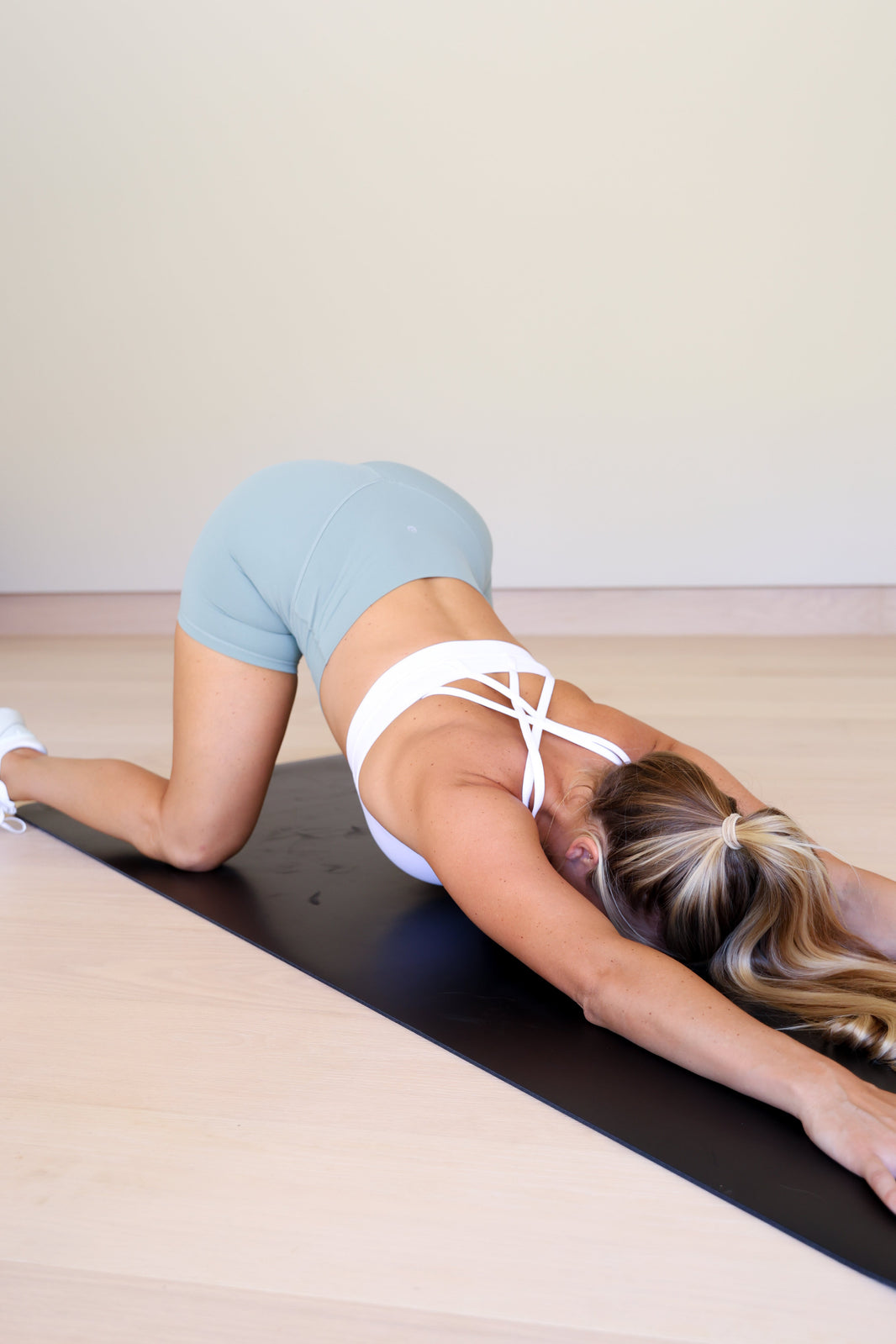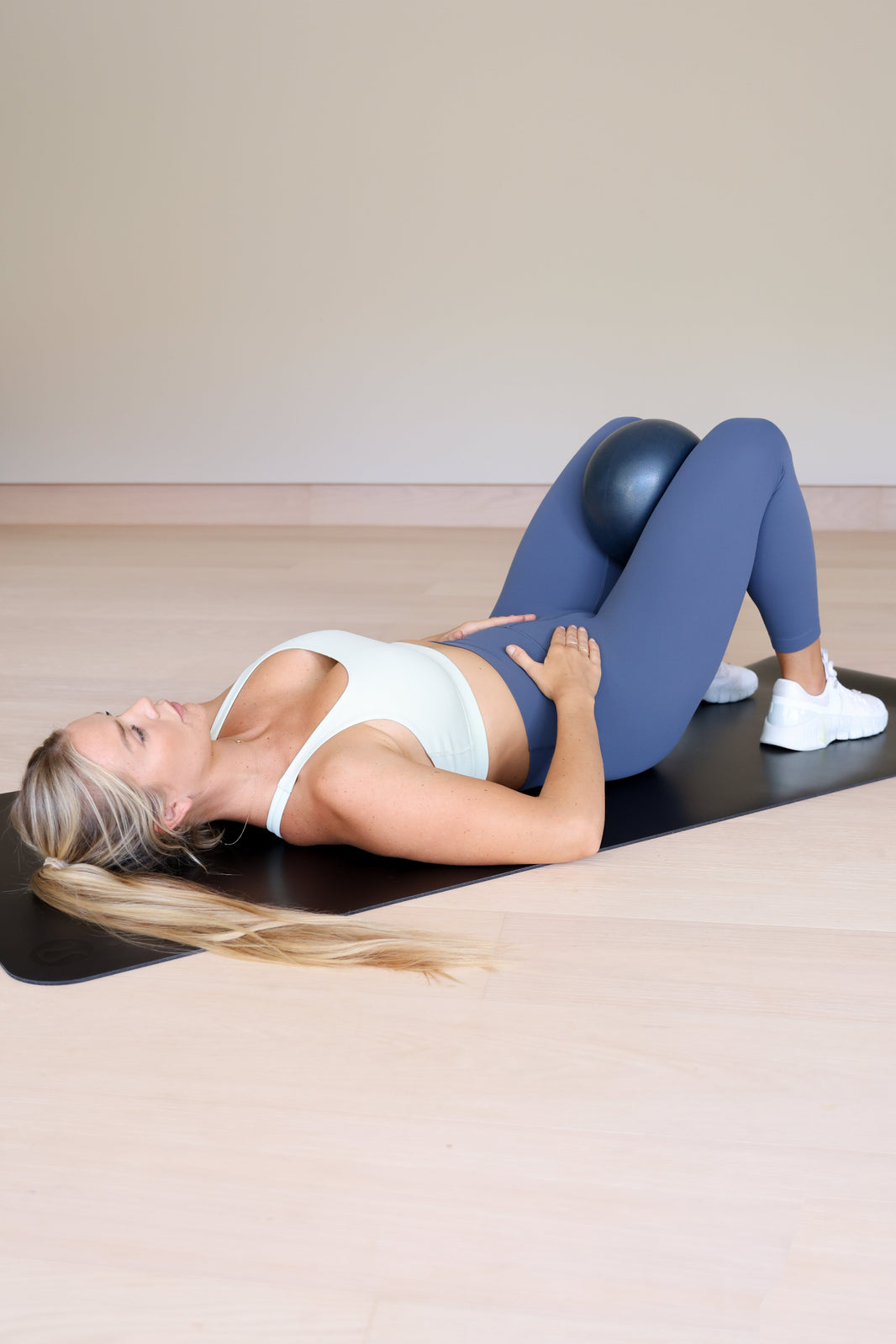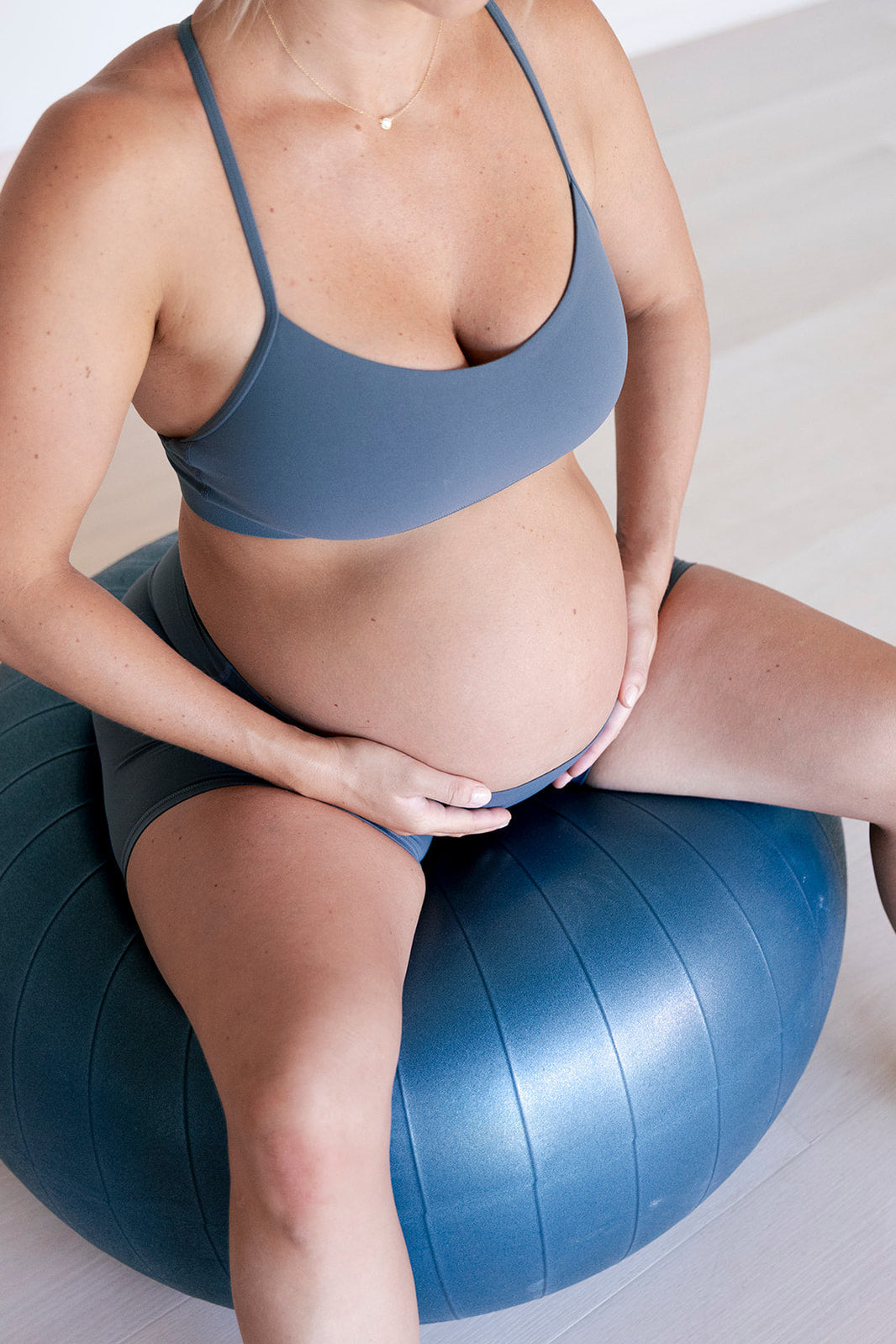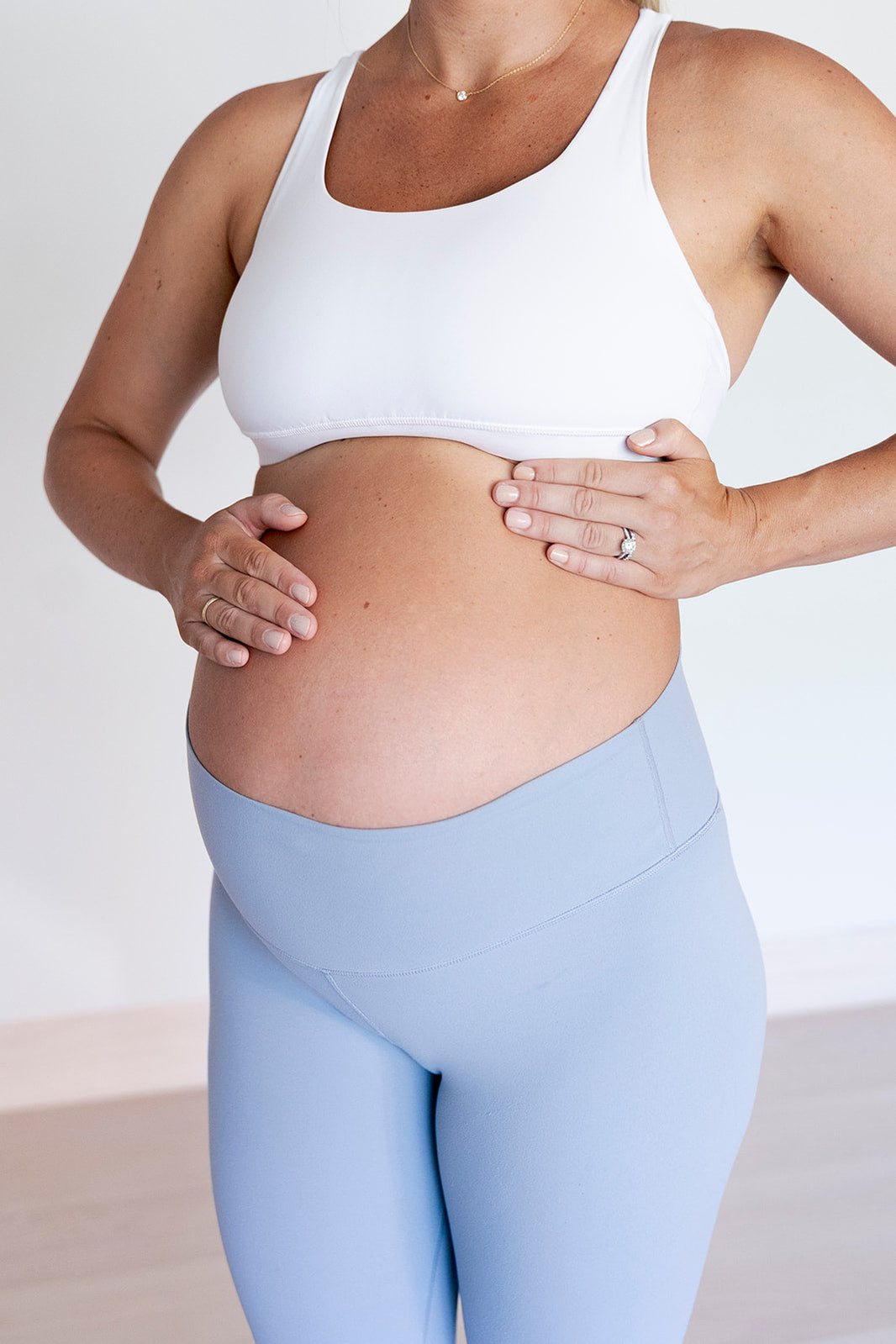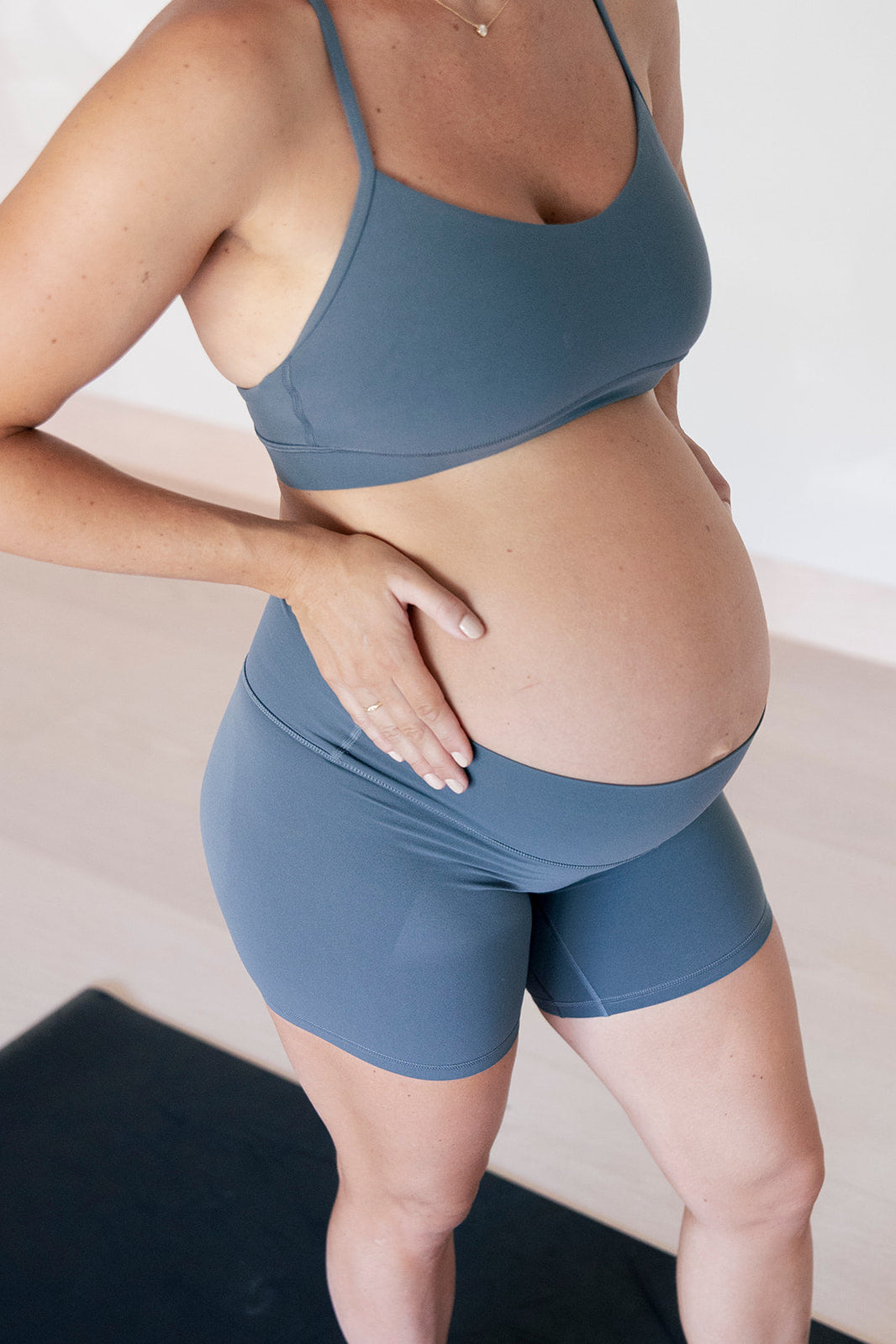Kegels have been a hot topic during pregnancy for years. But when should we focus on strengthening, and when should we emphasize elongation and relaxation?
During pregnancy, the pelvic floor muscles bear a lot of weight, and hormonal changes increase joint laxity, leading to SI joint pain, pubic bone pain, and back pain. Bladder leaks are also more common due to the pressure on these muscles. Therefore, strengthening the pelvic floor is essential throughout pregnancy because if the pelvic floor is not strong enough to hold this extra weight then the muscles will tighten, potentially leading to even more dysfunction and a longer childbirth. However, it’s not as simple as doing 50 Kegels a day.
Our pelvic floor muscles are dynamic, so it’s crucial to target different aspects of their function to get the best results.
Here’s how you can do it:
1. Endurance: Perform longer Kegel holds—10 repetitions of 10-second holds, three times a day.
2. Strength: Do smaller Kegel holds—2-second holds, repeated 8-12 times, three times a day.
3. Power: Practice quick Kegels—rapid contractions and releases, six repetitions, three times a day.
Implementing these exercises in various positions, from easy to more challenging, can improve muscle ability, enhance pelvic stability, and support postpartum recovery.
But wait, there's more!
Strengthening alone isn't enough. Your pelvic floor muscles need to stretch to nearly 150% of their maximum length during birth, so you must also focus on elongating and relaxing these muscles. While you can continue with pelvic floor strengthening exercises up until your due date, start incorporating reverse Kegels and pelvic floor stretches around 32-34 weeks of pregnancy.
Here’s how to elongate your pelvic floor muscles:
1. Reverse Kegels: Whether lying on your back, side, all fours, or sitting supported, practice inhaling deeply, letting your belly expand, filling your rib cage, and relaxing your pelvis. Imagine a flower blooming between your vagina and anus or opening as if releasing gas or expanding between your sit bones. Allow the muscles to fully release tension!
2. Perineal Stretches: Manually stretch your pelvic floor muscles through the vagina using a finger or a tool to enhance their stretch capacity.
3. Pelvic Floor Opener Stretches: Poses like child’s pose with wide legs, happy baby pose, or frog pose can significantly improve your pelvic floor's flexibility for birth.
These guidelines can be beneficial, but everyone is different. If you're unsure how to contract or elongate your pelvic floor muscles or are experiencing significant back pain, pelvic girdle pain, or bladder leakage during pregnancy, an individualized approach from a professional can be invaluable.




